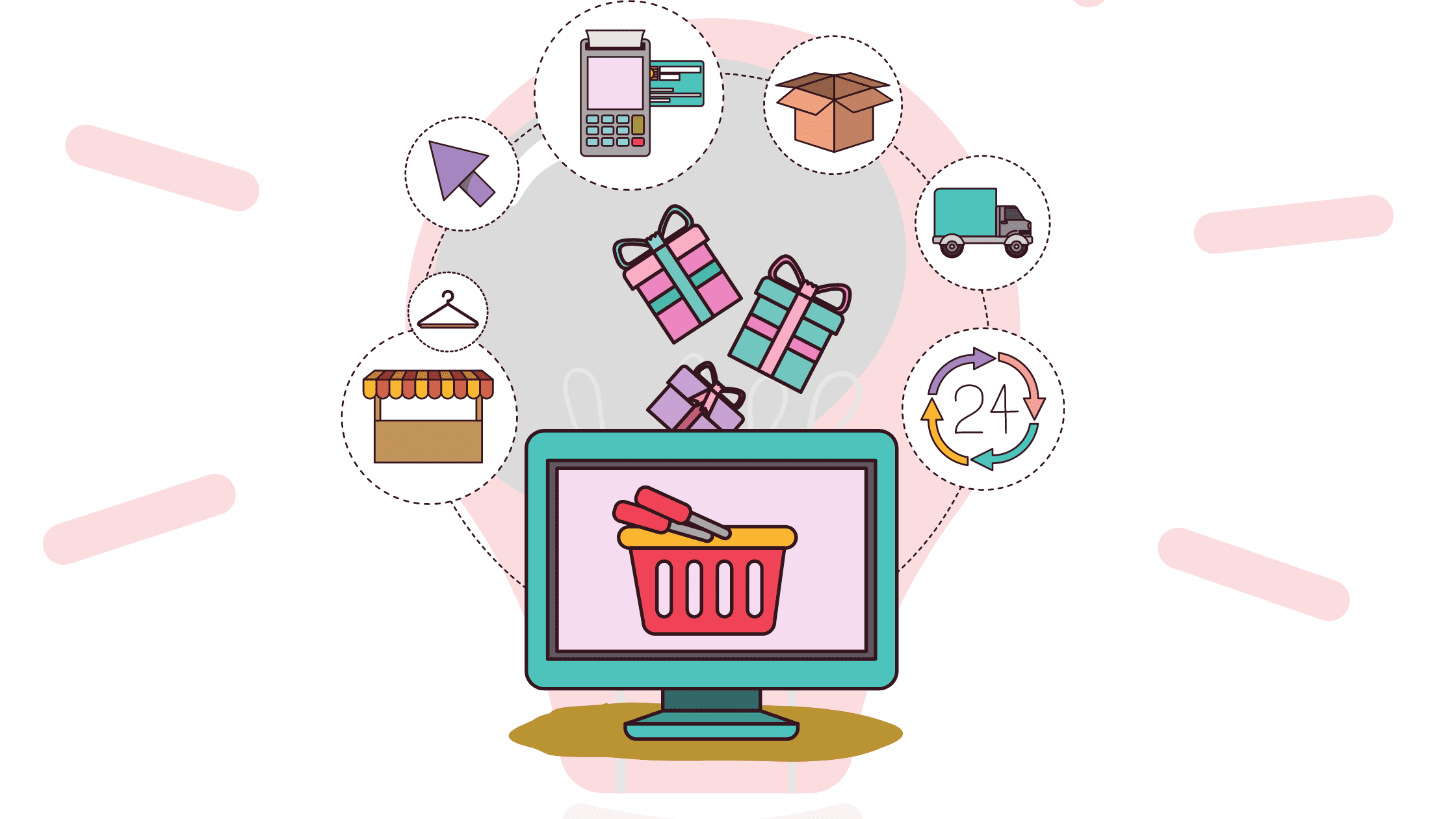In today’s digital world, many people like to shop online, and eCommerce is getting increasingly popular. But when you have an online store, it’s essential to ensure it’s safe and secure for everyone using it. This underscores the importance of web security for an Ecommerce store.
Keeping your online store secure is crucial for its success. There’s a lot of talk about hackers and data breaches, so understanding how to protect your eCommerce website is a big deal. How can you stop things like phishing and brute force attacks?
This guide will show you simple steps to protect your online store from hackers and other threats.
What is E-commerce security?
If you run an online store, it’s crucial to know about the risks involved. E-commerce security is the method to protect your online shop from data breaches and cyber-attacks.
E-commerce security covers all measures to prevent fraudulent activities, such as stealing credit card information or making fake orders. A secure eCommerce website doesn’t mean it’s completely safe from attacks; it means active steps are taken to protect your customers’ financial information.
To properly secure an eCommerce website, you need SSL certificates like Comodo SSL, Rapid SSL, Thawte SSL Certificate, etc. These certificates ensure that only secure HTTPS requests come to your web server. A secure eCommerce site ensures that customer data, payment information, and other sensitive details are safe from malicious individuals.
Building trust with your customers involves security measures like:
Privacy
As an owner of an e-commerce website, guaranteeing the confidentiality of customer data is paramount to building trust and providing a secure online shopping experience. Addressing data privacy concerns is crucial, ensuring compliance with current regulations and best practices.
Privacy safeguards every action, potentially exposing customers’ data to untrusted third parties and limiting access solely to the chosen online vendor.
Non-repudiation
The non-repudiation feature adds a layer of security by proving that intended recipients received communications between the involved parties. It prevents any party in a transaction from disavowing the signing of documents, emails, or purchases.
Integrity
Integrity is a pivotal aspect of e-commerce security, ensuring that all data shared by customers online remains unaltered. Maintaining the customer’s details as submitted is fundamental, as any modification raises doubts about the business’s online security and reliability.
Authentication
Authentication is critical in e-commerce website security, ensuring only authorized individuals can access the site. Various authentication methods, such as two-factor authentication, password strength requirements, and captcha codes, contribute to securing an e-commerce website against external threats.
Authentication in e-commerce security demands verification of the authenticity of sellers and buyers. Businesses must demonstrate their legitimacy and ability to fulfill promises, while customers need to provide identity proof to assure sellers during online transactions. Hiring experts or utilizing popular solutions, such as customer logins and credit card PINs, can significantly enhance security.
The importance of security in e-commerce
Imagine you’ve started a new business online, investing time and money. It’s crucial to understand that keeping your business secure is important. It becomes even more critical if your website deals with customers’ financial information.
To ensure safety, buying website security like an SSL certificate is vital. It helps in protecting the connection between your browser and server.
As a business owner with an online presence, you must keep customer information safe. Online security can be complex, but it’s your job to protect your website from hackers and prevent the theft of sensitive customer data.
When visitors enter personal information like credit card numbers on your site, they want to be sure it’s well-protected. If your business suffers a security breach and information is exposed, customers might lose trust, making them hesitant to do business with you.
But it’s not just about your customers. If your site gets hacked, you must fix the security issue. It could involve expenses like:
- Investigating financial records
- Getting data recovery services
- Providing credit monitoring for your customers
Your company must also follow security rules to meet legal requirements for online businesses. Not adhering to these rules, such as the Payment Card Industry Data Security Standard (PCI DSS) for credit card transactions, could lead to penalties or fines.
Major Ecommerce Cyber Security Threats
Implementing safeguards is crucial to shield your business and customers from online threats. Here are some common threats to be aware of.
Phishing
One primary security concern is phishing, where individuals receive deceptive emails appearing to be from trusted sources requesting personal information. Users unknowingly provide this information, thinking it is a legitimate request. These fraudulent emails often pose as government agencies checking or updating data.
It is advisable to keep personal information private if you initiate the communication. It is safer to contact the company’s customer service line instead of responding directly to emails or texts or providing details over the phone. Additionally, use an SPF checker to verify the legitimacy of communication channels before responding to unsolicited messages.
The impact of phishing on an eCommerce website should be considered. Criminals attempt to acquire sensitive information, such as usernames, passwords, or credit card details, by posing as a legitimate business.
Various phishing methods can be followed:
- Target your website
- Including malicious email links
- Pop-up windows
- Text messages.
These tactics aim to extract confidential information from customers or your business.
Protecting against phishing involves training staff to recognize potential threats and ensuring secure storage and encryption of customer data. Employ anti-virus software to scan incoming emails and block suspicious links or attachments. Implement a secure web application firewall to scan incoming web requests and block malicious traffic.
These measures will help fortify your website against phishing threats, ensuring your customers’ and business’s safety and security.
SQL Injection
In certain instances, hackers can discover your website’s source code and insert their own SQL queries. Hackers can compromise your site’s security by exploiting vulnerabilities in specific pages of your website that allow unauthorized actions, like altering or retrieving data.
It’s important to note that hackers don’t necessarily need sophisticated equipment; a personal computer and an internet connection are often sufficient. They usually don’t even have to input login credentials because some website owners need to secure their sites adequately.
The root of the issue lies in poorly written code or security gaps that create opportunities for hackers to exploit. To defend against such attacks, it is crucial to regularly update your system and implement a web application firewall to safeguard against malicious data.
E-skimming
Criminals can secretly install a card reader on an existing point-of-sale device, like a store register, through electronic skimming. It enables them to gather credit card information remotely, including your PIN, by tapping into nearby computers with internet access.
When engaging in e-skimming, hackers can extract all your details from your credit card processing pages.
To safeguard your website’s payment page, the FBI recommends regular software and password updates, along with the implementation of multifactor authentication.
Cross-site scripting (XSS)
At its core, XSS occurs when a hacker or malicious user injects harmful code into your website. These attacks manifest in two ways: DOM-based and input-based. The former impacts entire pages, while the latter targets specific elements within a web page.
In DOM-based XSS, a hacker locates an existing script (e.g., JavaScript) and substitutes it with a modified version containing malicious code. With input-based XSS, a hacker can alter HTML elements on a page by inserting code into an element’s attribute value.
Enhance your data security and fortify your eCommerce website by considering the implementation of the HTTP Content Security Policy.
Ecommerce website security tips
Security is a top priority for website owners, especially when safeguarding customer data and the business. To ensure the protection of your data and identity, consider the following tips:
Encrypt all sensitive information:
When your customers log in to your website, use a secure connection called HTTPS. It keeps their login details private and stops potential hackers from reading them as they travel through the internet.
Encryption technology helps to protect critical data like customer details and payment information. It makes it challenging for people who shouldn’t have access to get hold of your customers’ data. A secure connection, such as HTTPS, also helps guard your website against destructive online attacks.
If you’re running an online store (eCommerce), it’s a good idea to boost security by getting an SSL wildcard certificate. It stops unauthorized people from entering your system and makes customers feel safer shopping with you. Google and Amazon even use HTTPS as a sign of a secure website in their search results. Also, more than half of shoppers have left online shopping because they worry about security.
If your online store uses QR codes to get more people to visit the checkout page, ensure the codes are certified as SOC 2® Type 2. It adds an extra layer of security.
Perform regular checks on your SQL:
To safeguard your database, it’s essential to conduct routine SQL checks. This proactive approach enables the immediate detection of any issues with your database structure or potential security threats.
Use a chosen scanner to establish a daily security scanning routine for your website. It ensures identifying and resolving any weaknesses before malicious entities can exploit them.
Ensure your website is regularly updated and secured:
As hackers identify vulnerabilities, developers work to create patches. Websites receive updates frequently, often including crucial security fixes.
It’s essential to be vigilant about applying updates promptly. If updates are not automated, be sure to update your website manually. Consider enabling automatic updates for your website and your entire computer as an extra precaution.
Ensure that you carefully review and incorporate any downloads:
Having the capability to download and add plugins, tools, applications, and more to your website is a valuable feature. However, exercise caution when downloading and integrating software. Specific hackers exploit these extensions to install harmful protocols on your website.
In some cases, it may not be intentional. Some plugins might not be optimized for your application, exposing your website to potential attacks.
Maintain regular backups of your website data:
For enhanced eCommerce website security, it’s advisable to routinely back up your website data in case of a catastrophic failure. You can achieve this through two primary methods: utilizing your hosting provider’s automatic backups or manually creating a backup yourself.
Final Verdict
Protecting your Ecommerce store is crucial. Invest in solid cybersecurity like multifactor authentication and encryption to safeguard customer data. Regular security scans help detect and fix vulnerabilities. Following these practices ensures your online store stays secure.
Use Canadian Software Agency to grow your e-commerce business! As your go-to Canadian e-commerce experts, we create stunning websites that boost sales. From sleek designs to secure payments, we’ve got you covered. Let’s take your business to the next level together.






